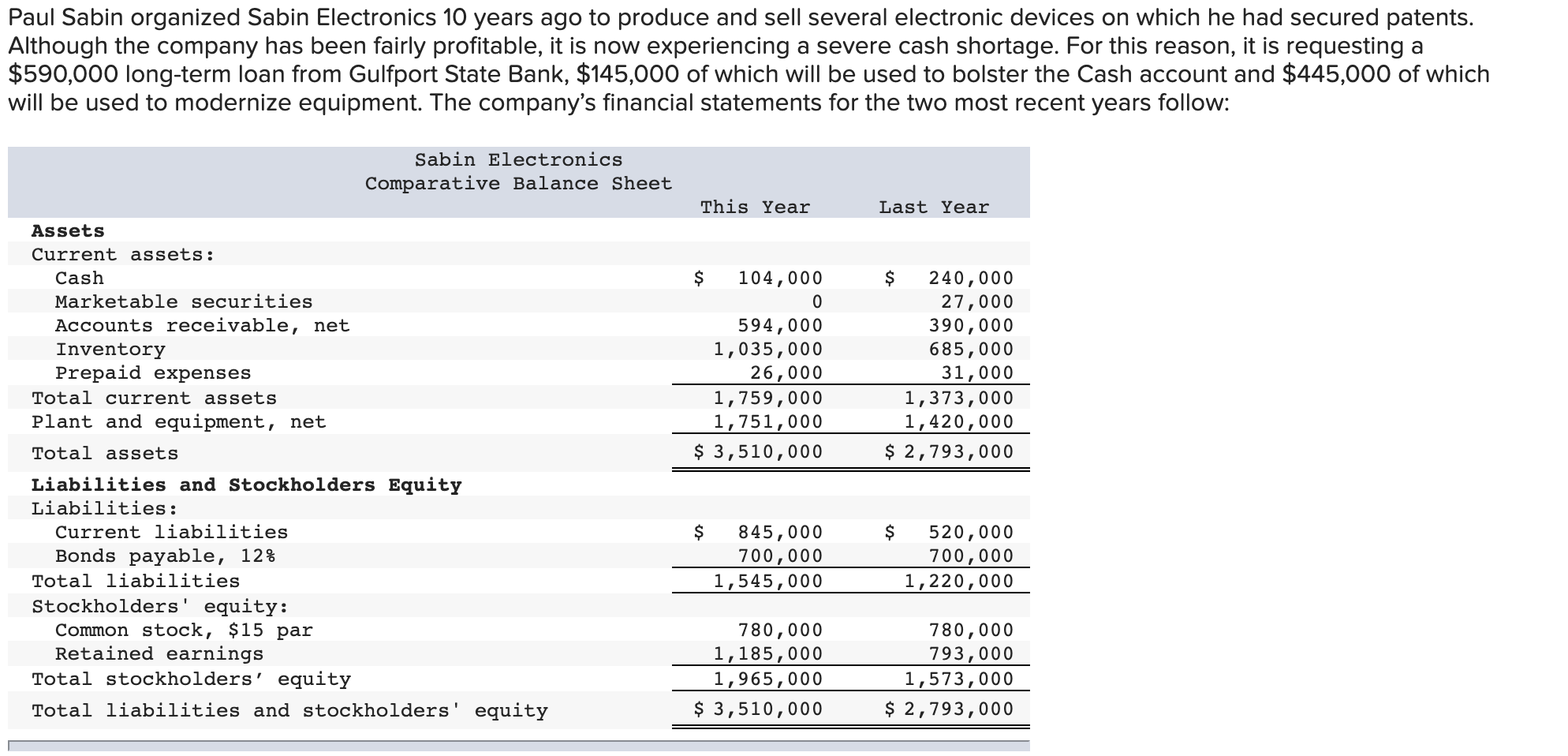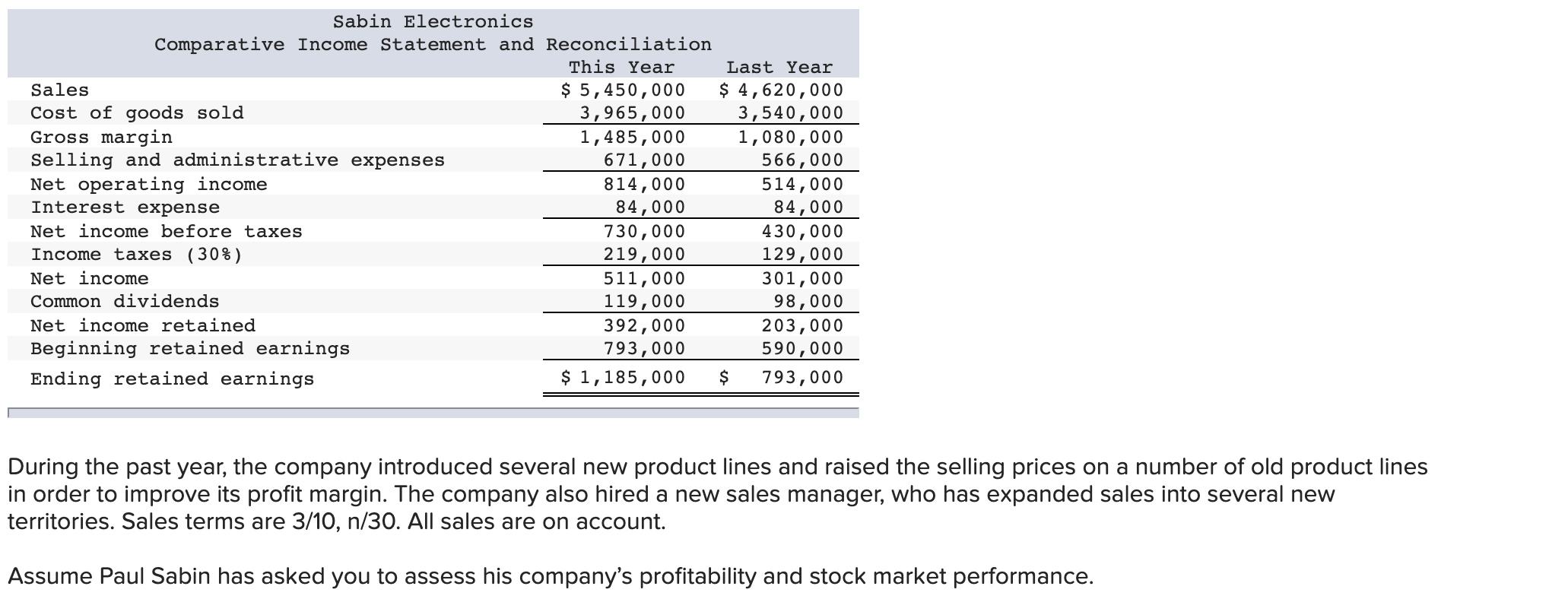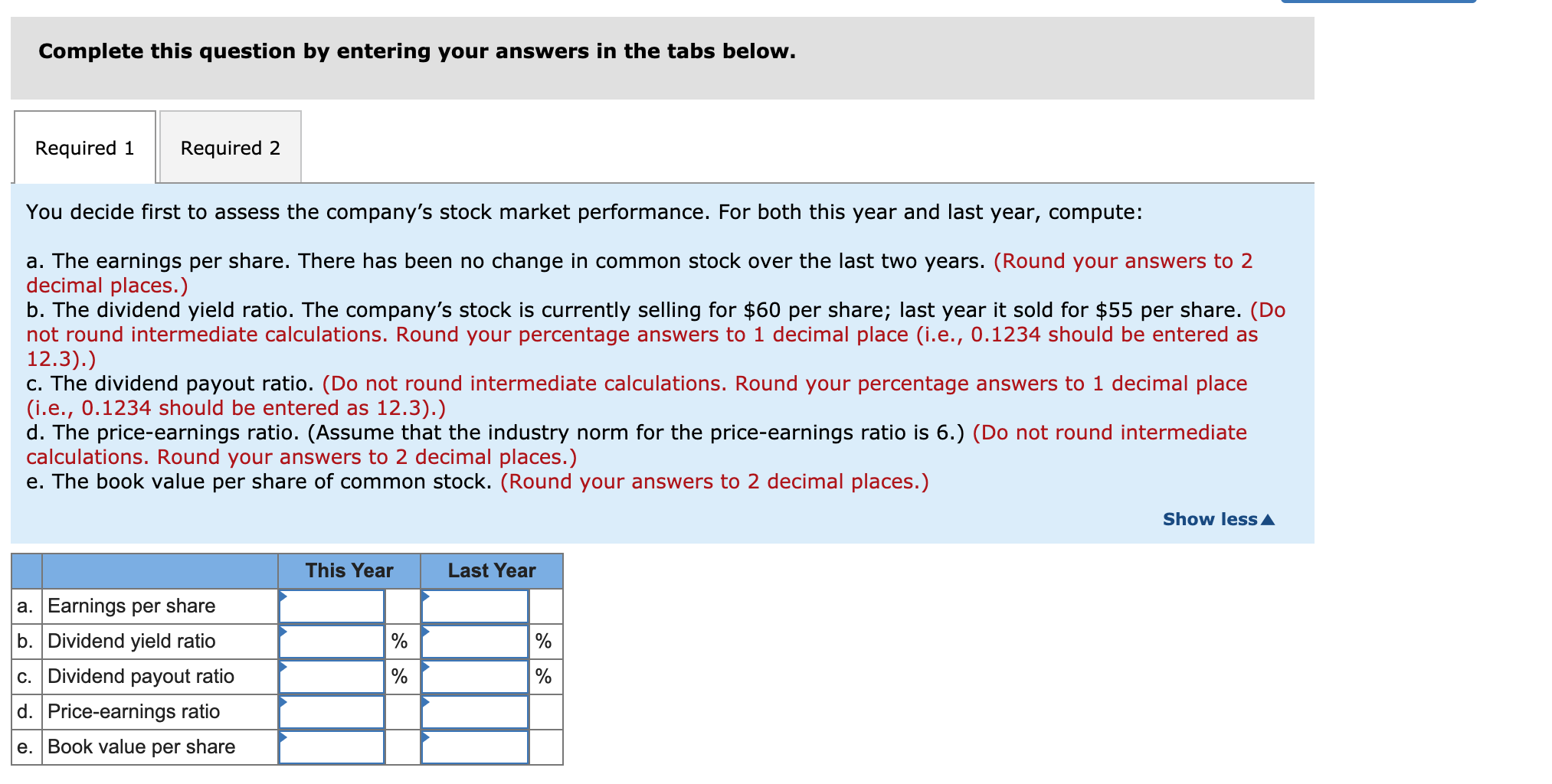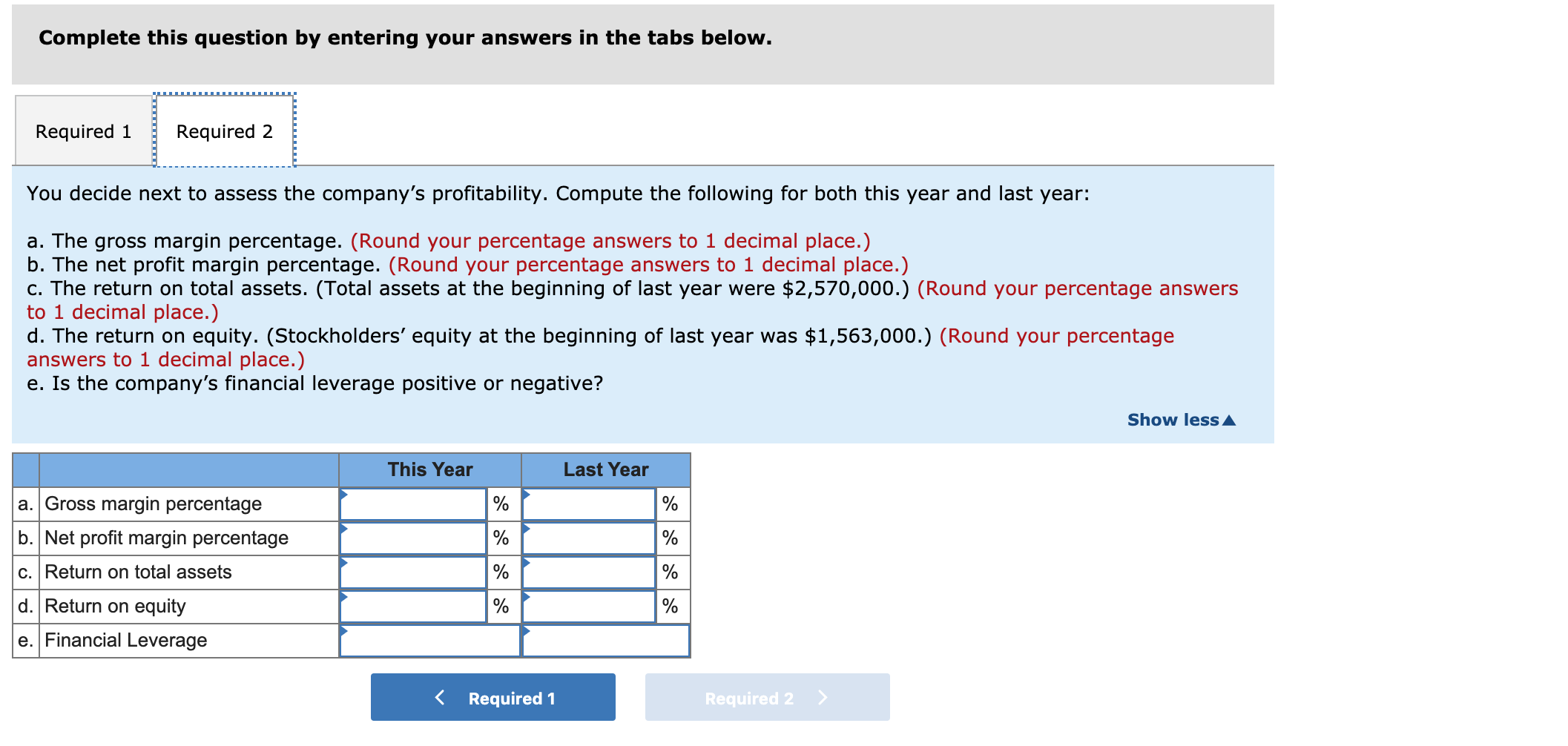




Paul Sabin organized Sabin Electronics 10 years ago to produce and sell several electronic devices on which he had secured patents. Although the company has been fairly profitable, it is now experiencing a severe cash shortage. For this reason, it is requesting a $590,000 long-term loan from Gulfport State Bank, $145,000 of which will be used to bolster the Cash account and $445,000 of which will be used to modernize equipment. The company's financial statements for the two most recent years follow: Sabin Electronics Comparative Balance Sheet This Year Last Year $ 104,000 0 594,000 1,035,000 26,000 1,759,000 1,751,000 $ 3,510,000 $ 240,000 27,000 390,000 685,000 31,000 1,373,000 1,420,000 $ 2,793,000 Assets Current assets: Cash Marketable securities Accounts receivable, net Inventory Prepaid expenses Total current assets Plant and equipment, net Total assets Liabilities and Stockholders Equity Liabilities: Current liabilities Bonds payable, 12% Total liabilities Stockholders' equity: Common stock, $15 par Retained earnings Total stockholders' equity Total liabilities and stockholders' equity $ $ 845,000 700,000 1,545,000 520,000 700,000 1,220,000 780,000 1,185,000 1,965,000 $ 3,510,000 780,000 793,000 1,573,000 $ 2,793,000 Sabin Electronics Comparative Income Statement and Reconciliation This Year Last Year Sales $ 5,450,000 $ 4,620,000 Cost of goods sold 3,965,000 3,540,000 Gross margin 1,485,000 1,080,000 Selling and administrative expenses 671,000 566,000 Net operating income 814,000 514,000 Interest expense 84,000 84,000 Net income before taxes 730,000 430,000 Income taxes (30%) 219,000 129,000 Net income 511,000 301,000 Common dividends 119,000 98,000 Net income retained 392,000 203,000 Beginning retained earnings 793,000 590,000 Ending retained earnings $ 1,185,000 $ 793,000 During the past year, the company introduced several new product lines and raised the selling prices on a number of old product lines in order to improve its profit margin. The company also hired a new sales manager, who has expanded sales into several new territories. Sales terms are 3/10, n/30. All sales are on account. Assume Paul Sabin has asked you to assess his company's profitability and stock market performance. Required: 1. You decide first to assess the company's stock market performance. For both this year and last year, compute: a. The earnings per share. There has been no change in common stock over the last two years. b. The dividend yield ratio. The company's stock is currently selling for $60 per share; last year it sold for $55 per share. c. The dividend payout ratio. d. The price-earnings ratio. (Assume that the industry norm for the price-earnings ratio is 6) e. The book value per share of common stock. 2. You decide next to assess the company's profitability. Compute the following for both this year and last year: a. The gross margin percentage. b. The net profit margin percentage. c. The return on total assets. (Total assets at the beginning of last year were $2,570,000.) d. The return on equity. (Stockholders' equity at the beginning of last year was $1,563,000.) e. Is the company's financial leverage positive or negative? Complete this question by entering your answers in the tabs below. Required 1 Required 2 You decide first to assess the company's stock market performance. For both this year and last year, compute: a. The earnings per share. There has been no change in common stock over the last two years. (Round your answers to 2 decimal places.) b. The dividend yield ratio. The company's stock is currently selling for $60 per share; last year it sold for $55 per share. (Do not round intermediate calculations. Round your percentage answers to 1 decimal place (i.e., 0.1234 should be entered as 12.3).) c. The dividend payout ratio. (Do not round intermediate calculations. Round your percentage answers to 1 decimal place (i.e., 0.1234 should be entered as 12.3).) d. The price-earnings ratio. (Assume that the industry norm for the price-earnings ratio is 6.) (Do not round intermediate calculations. Round your answers to 2 decimal places.) e. The book value per share of common stock. (Round your answers to 2 decimal places.) Show less This Year Last Year a. Earnings per share % % b. Dividend yield ratio c. Dividend payout ratio d. Price-earnings ratio e. Book value per share Complete this question by entering your answers in the tabs below. Required 1 Required 2 ---------- You decide next to assess the company's profitability. Compute the following for both this year and last year: a. The gross margin percentage. (Round your percentage answers to 1 decimal place.) b. The net profit margin percentage. (Round your percentage answers to 1 decimal place.) c. The return on total assets. (Total assets at the beginning of last year were $2,570,000.) (Round your percentage answers to 1 decimal place.) d. The return on equity. (Stockholders' equity at the beginning of last year was $1,563,000.) (Round your percentage answers to 1 decimal place.) e. Is the company's financial leverage positive or negative? Show less A This Year Last Year a. Gross margin percentage b. Net profit margin percentage c. Return on total assets d. Return on equity e. Financial Leverage











